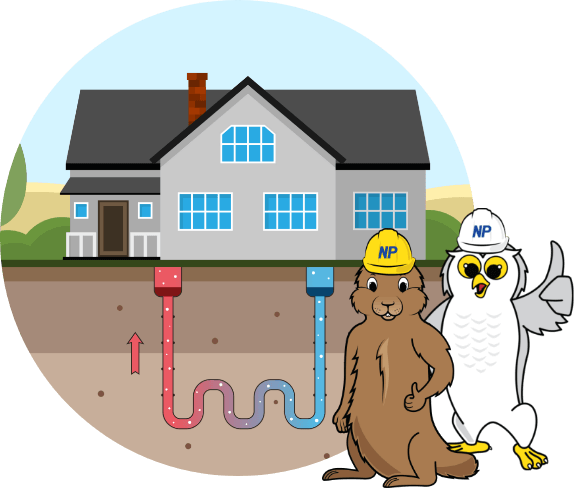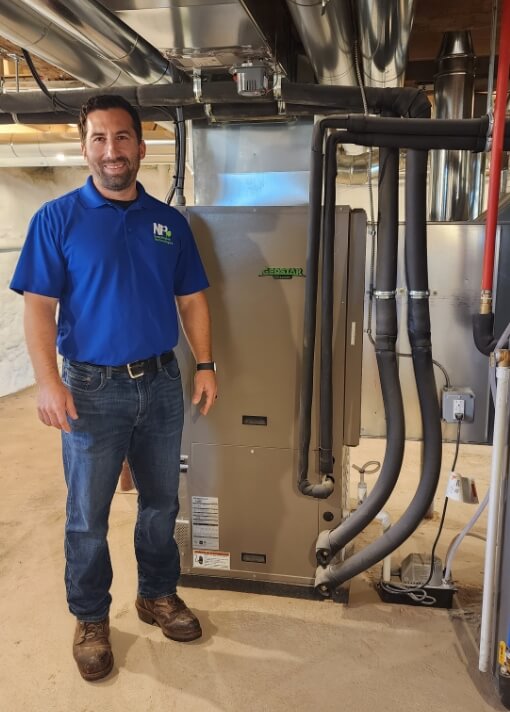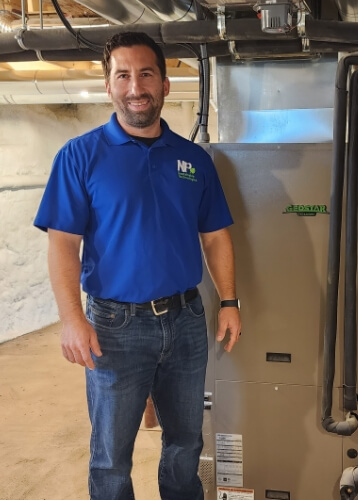This is a cutting-edge industry, which means we need to stay on top of the latest tax credits, energy rebates, and technological advancements that develop. Take a look at our blog for the latest information that relates to geothermal systems, air-sourced heat pumps, and even tips and tricks to help homeowners.
Geothermal heating and cooling systems have been around for a while, but they’ve never been more affordable and efficient than they are now. They use ground loops that are connected to a heat pump that uses the ambient temperature of the Earth’s crust to keep your home comfortable all year round. Get started on your geothermal journey by calling our team today.
Why not start with an all-electric, air source heat pump? These systems simply move heat from one location to another, but they do it at record speed and by using as little energy as possible. For a powerful, all-in-one heating and cooling unit, make sure you call our team to get started with an air source HVAC system that’s installed by a professional.
Comfort doesn’t end with the temperature of your home. It’s estimated that the air quality indoors is 2-5 times more polluted than the air quality outdoors, meaning your sanctuary might be contributing to poor health effects and discomfort. Work with our team for effective indoor air quality solutions, from air purifiers to air filters, and achieve maximum comfort today.
Your commercial establishment deserves just as much energy efficiency and comfort as a residential property. And with some powerful heat pumps, you can get even better returns! Work with our team to find the right industrial solution for your commercial comfort, whether it’s a geothermal system or a more conventional heating or cooling unit.
We also specialize in the installation, repair, and maintenance of water heaters. On average, depending on where you live, a conventional 50-gallon water heater will cost between $400–700 to run yearly. This is a large part of a home budget, and our team can help you limit those costs by either maintaining your current system or replacing it with one that’s much more energy-efficient.
One of the most eco-friendly things you can do for your HVAC technology is to invest in maintenance. Not only will your comfort systems use less energy and still provide you with great temperature control, but the system itself will last longer, helping you avoid frequent replacements and wasted components that would otherwise still work.











